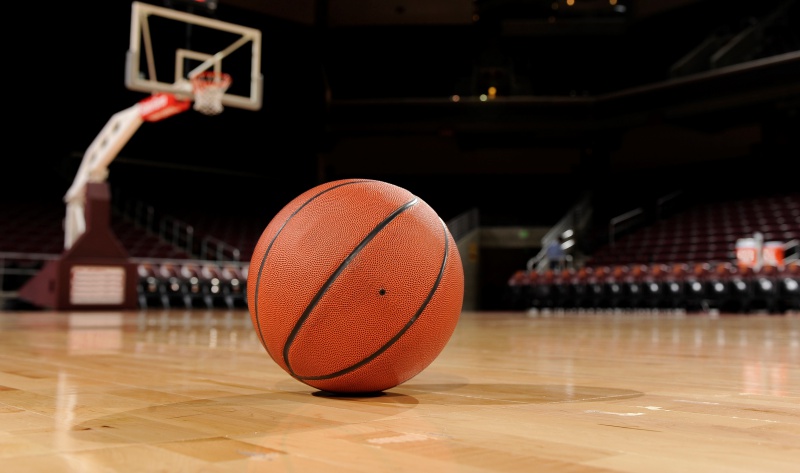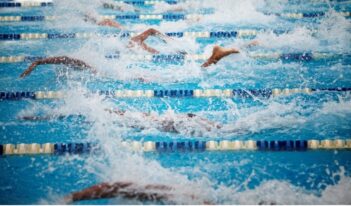
Endorsement money may soon become legal for college athletes.
During the 2021 NCAA March Madness tournament, prominent college basketball players posted #NotNCAAProperty on Twitter. They aimed to increase public pressure on the National Collegiate Athletic Association (NCAA) to permit student-athlete compensation for endorsements.
These athletes are not alone in their call for action. Eleven states have passed laws allowing college athlete compensation for third-party endorsements. And six pieces of legislation are pending in the U.S. Congress that would do the same nationwide.
The details of the state laws and federal bills differ, but they all mark a seismic shift in views about student athlete compensation. In February, U.S. Senator Jerry Moran (R-Kan.) became the seventh member of Congress—including three Democrats—to introduce legislation on what has become known as “name, image, and likeness” (NIL) reform for college athlete-endorsement compensation.
Only a couple of years ago, such legislative proposals for compensating college athletes would have been shocking to see. For years, the NCAA proclaimed that any ability for student athletes to obtain compensation, even for off-field activities, would destroy the spirit of amateur athletics. But after California passed state NIL legislation in 2019, and with Florida’s NIL legislation taking effect on July 1 of this year, the NCAA has started to change its position. Today, it supports federal legislation for student athlete NIL compensation.
Even though all of the proposed legislation in Congress would permit athlete-endorsement compensation, several bills include provisions that allow universities to retain some control over what products college athletes can endorse.
Republican Senator Moran, for example, has proposed allowing universities to create school-specific “codes of student conduct” to limit athlete endorsements. U.S. Representative Emanuel Cleaver (D-Mo.) and U.S. Representative Anthony Gonzalez (R-Ohio), in a bipartisan bill, proposed more specific limitations. These limitations include prohibiting athletes from wearing apparel of competing brands from the university, or endorsing companies the university would not endorse, such as alcohol or tobacco brands. Moran’s bill would rely on universities to create additional rules that could restrict NIL contracts, a potential antitrust concern that U.S. Senator Chris Murphy (D-Conn.) argues vigorously against in his proposal.
Federal proposals happened in quick succession over the last nine months because of the looming deadline of Florida’s state NIL legislation: July 1, 2021. Many federal proposals include a state preemption clause to avoid a patchwork of state regulations that could influence where a player decides to attend college, an outcome both Congress and the NCAA want to avoid.
All federal proposals ensure that “grant-in-aid,” essentially scholarships, remains guaranteed regardless of endorsement compensation. In addition, universities must avoid attempts to influence third parties to entice recruits to choose a certain school.
Even though current legislative proposals in Congress agree on the general framework of allowing college athletes to seek endorsement compensation, key differences include a limited antitrust exemption, royalty revenue, penalties, and enforcement.
Both the bill proposed by U.S. Senator Marco Rubio (R-Fla.) and the bill introduced by Representatives Gonzalez and Cleaver, for example, include a safe harbor from antitrust lawsuits. These proposals are in opposition to Senator Murphy’s bill which states that violating NIL legislation is “a per se violation of the Sherman Act.” A per se violation would mean that if college athletes can demonstrate illegal price fixing or market division, the university would automatically lose and be unable to offer any justifications for their actions.
The discussion of antitrust scrutiny comes as the U.S. Supreme Court recently heard an NCAA antitrust case. On March 31, the Supreme Court heard argument in the case of NCAA v. Alston, an antitrust case over alleged collusion by the NCAA and universities to limit athletic scholarships to “non-cash education-related benefits.” Similar to the Ninth Circuit in Alston, drafters of NIL legislation recognize the harm that can occur if universities, NCAA, or third parties fix prices or divide the market for college athlete-endorsement contracts.
U.S. Senator Cory Booker (D-N.J.) has introduced the most expansive proposal, which would require universities to create a revenue sharing agreement with college athletes. This would require universities to pay eligible college athletes 50 percent of all revenue generated from their sport annually, minus scholarship costs. For reference, in the 2018–2019 academic year, the University of Alabama football team yielded revenue of $108.2 million for the school.
Senator Booker’s plan also includes the most expansive penalties for universities that violate the act. Under his plan, a university would face fines of 20 percent of total athletic revenue for coordinating with other universities or third parties to limit player endorsement compensation.
Enforcement of all bills would occur through the unfair or deceptive practices section of the Federal Trade Commission Act. In addition, the two Democratic senators’ bills include a private right of action for student athletes to bring cases against the NCAA or universities.
The NCAA, after opposing California state legislation two years ago, supports federal NIL legislation. In January 2021, the NCAA’s Presidential Subcommittee on Congressional Action recommended that Congress include preemption of state NIL laws, safe harbor against NIL lawsuits, and student athlete “nonemployment status.”
The University of Washington has created a “Boundless Futures curriculum” that assists student athletes in developing skills to monetize their NIL rights. Other universities are preparing similar programs for their student athletes, as several NIL bills, including Florida’s state legislation, require student athlete workshops on personal branding and financial well-being.
Allowing college athletes to receive endorsement compensation marks a paradigm shift for college athletics. Even though all parties expect federal NIL legislation to be adopted at some point, change will likely not occur until after the Supreme Court decides Alston, an outcome expected by June 2021.



